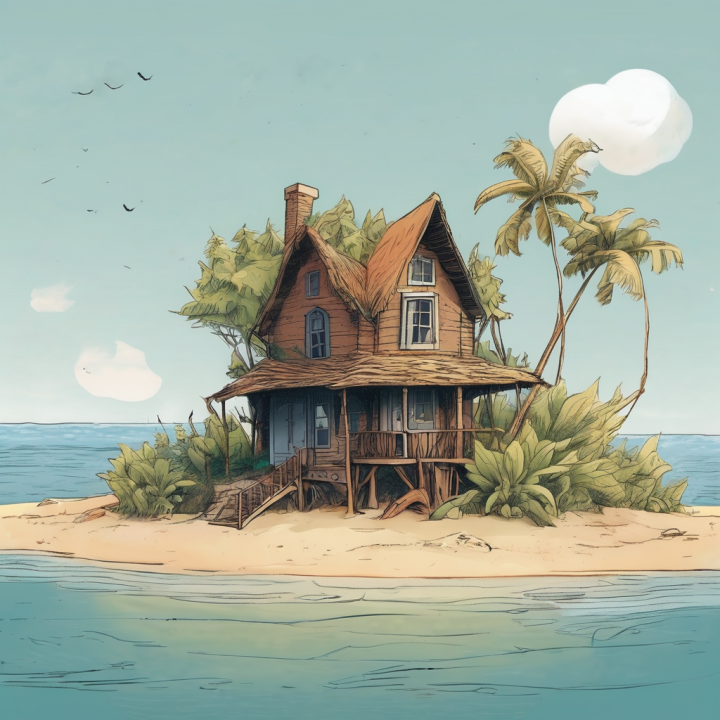The Isolated Archipelago of Illness

Roi Shternin
When chronic illness strikes, patients often find themselves lost at sea, cast away on isolated islands of pain and debilitation. Diagnoses may at first appear like uniform atolls, but up close, each illness reveals itself as a unique landmass requiring specialized navigation.
On the ragged shores, the storms of symptom flares and treatment side effects routinely batter exhausted inhabitants. The tropical heat of inflammation and the chilling fog of depression envelop the islands in alternating waves. Thick jungles of anxiety and dark caves of despair dominate the interiors.
Outsiders visit periodically, ferrying supplies and offering glimpses of the outside world. Well-intentioned doctors make rounds to monitor vitals and adjust medications. Friends and family send care packages overflowing with advice and the latest “miracle cure” they saw on TV.
But at the end of their shifts and visits, these outsiders return home, leaving inhabitants to face the long nights alone. No one truly understands the topography of each island or how to survive its harsh environment. No one knows how it feels to map its dangers by moonlight, ever vigilant for signs of a dangerous mood swing or a debilitating symptom flare.
So inmates have begun building fires along the shores, sending smoke signals in the hope of finding kinship across the waters. They craft vessels from remnants of old treatments and shattered expectations, daring the tumultuous seas in search of fellow churned-up souls.
Slowly, pulsating rings of light begin to connect the islands, flickering Morse code messages of “You are not alone.” Steadily, the network grows, islanders risking rocky voyages to gather and share hard-won wisdom. They tend campfires as lighthouses, standing vigilant through squalls of despair.
Together, they build sturdier vessels and establish supply routes. They construct piers from the bones of old fears and the blood of resilience. In time, even the most isolated patients can find their way to the growing ports of hope, support and understanding that patient communities provide.
United in adversity, the inhabitants are transforming their isolated archipelago into a thriving island nation. By sharing stories, strategies and strength, they are turning rugged shores into welcoming harbors, dark nights into bright beacons, and solitary islands into an empowered community.
As healthcare providers, we have an obligation to understand the profound isolation our patients with chronic illness experience. We must endeavor to truly listen and provide emotional support, not just clinical care.
Where we see only diagnostic codes and treatment options, our patients see imposing islands of pain and loneliness. What we view as routine labs and referrals they experience as a disconnected and impersonal bureaucracy.
We must peer deeper and see the whole patient - their fears, frustrations, and inner strength. We must become the lighthouses guiding them through rocky straits, the piers supporting them when they land upon our shores.
With compassion and commitment, we can build bridges between patients and providers. We can illuminate darkened horizons and show alternate routes forward. We can empower patients to transform solitary islands into a community of collective understanding.
We can chart new courses from isolation toward connection. We can evolve an archipelago of fragmentation into a nation of support. We can teach resilience in the face of storms. We can bring hope to even the most remote island dweller.
I have written an entire book about the needs of Patients in healthcare; you can find it here: https://books2read.com/u/3JoO8Q